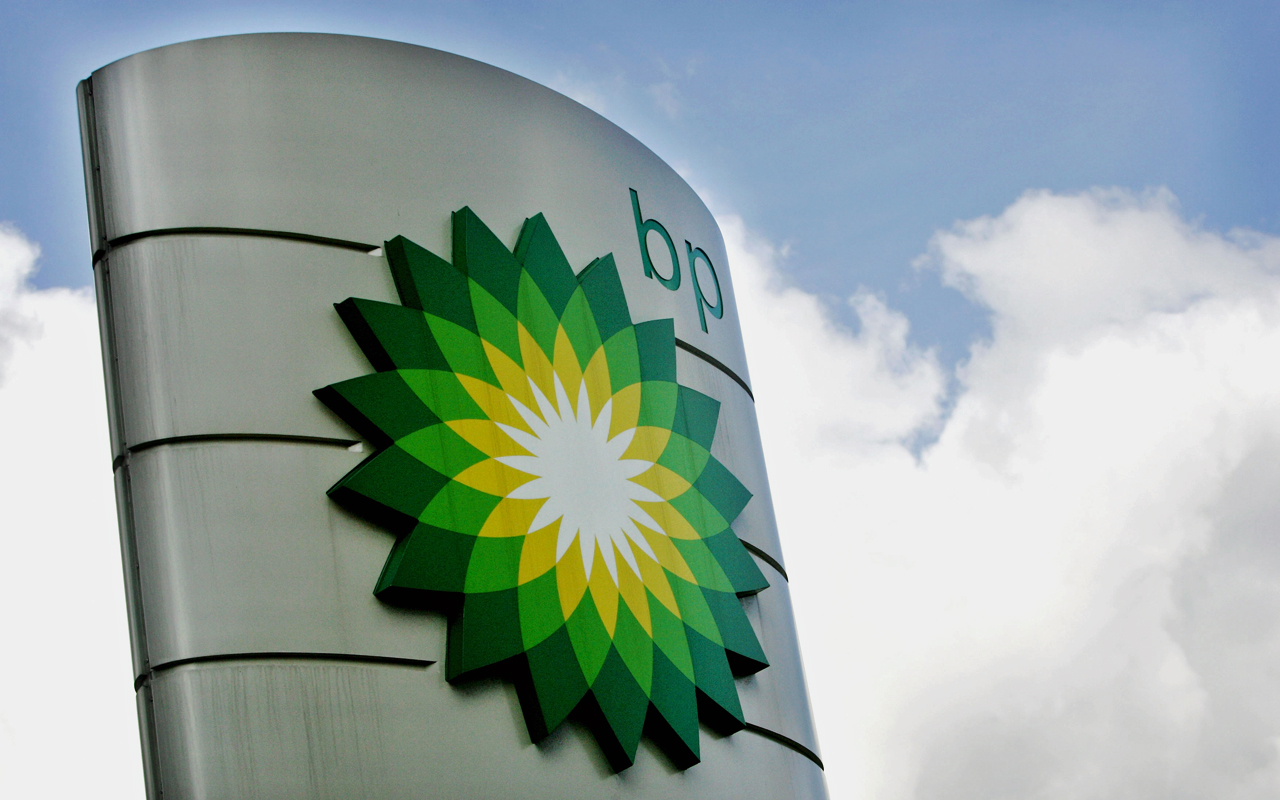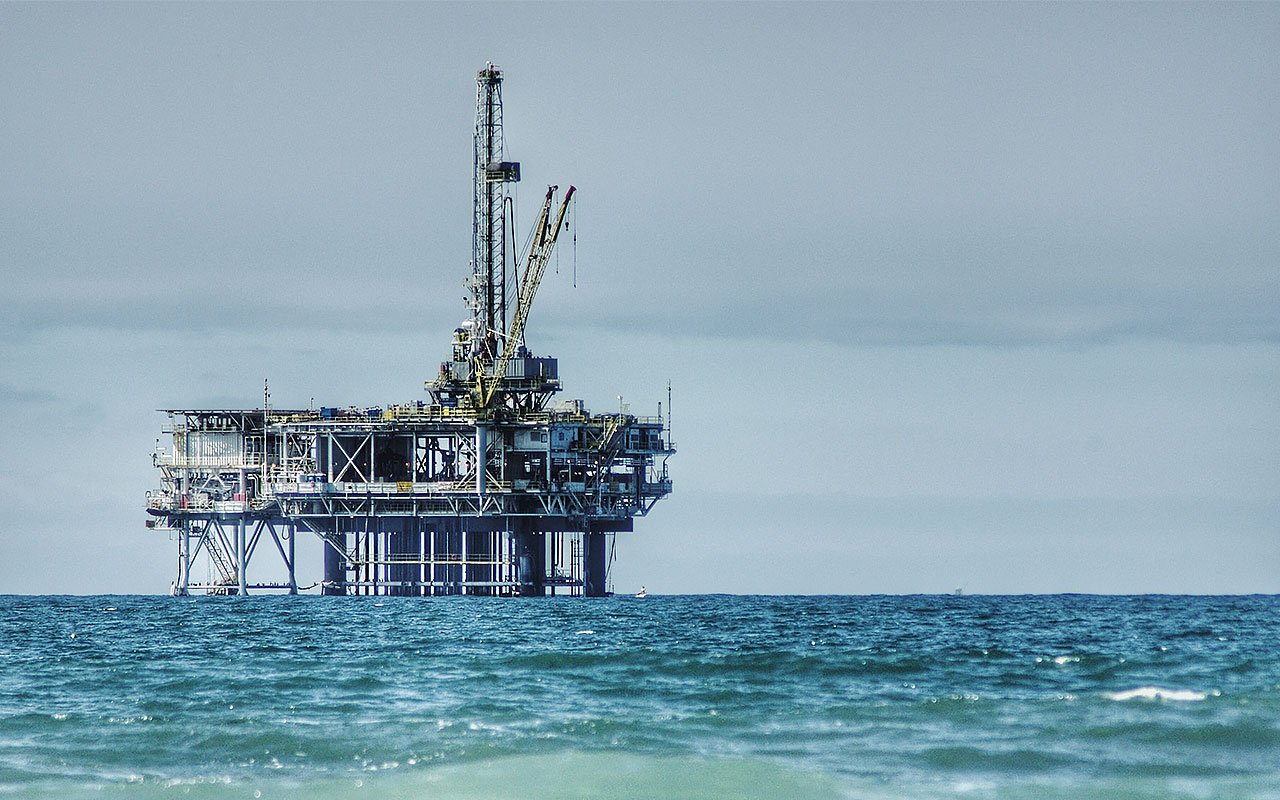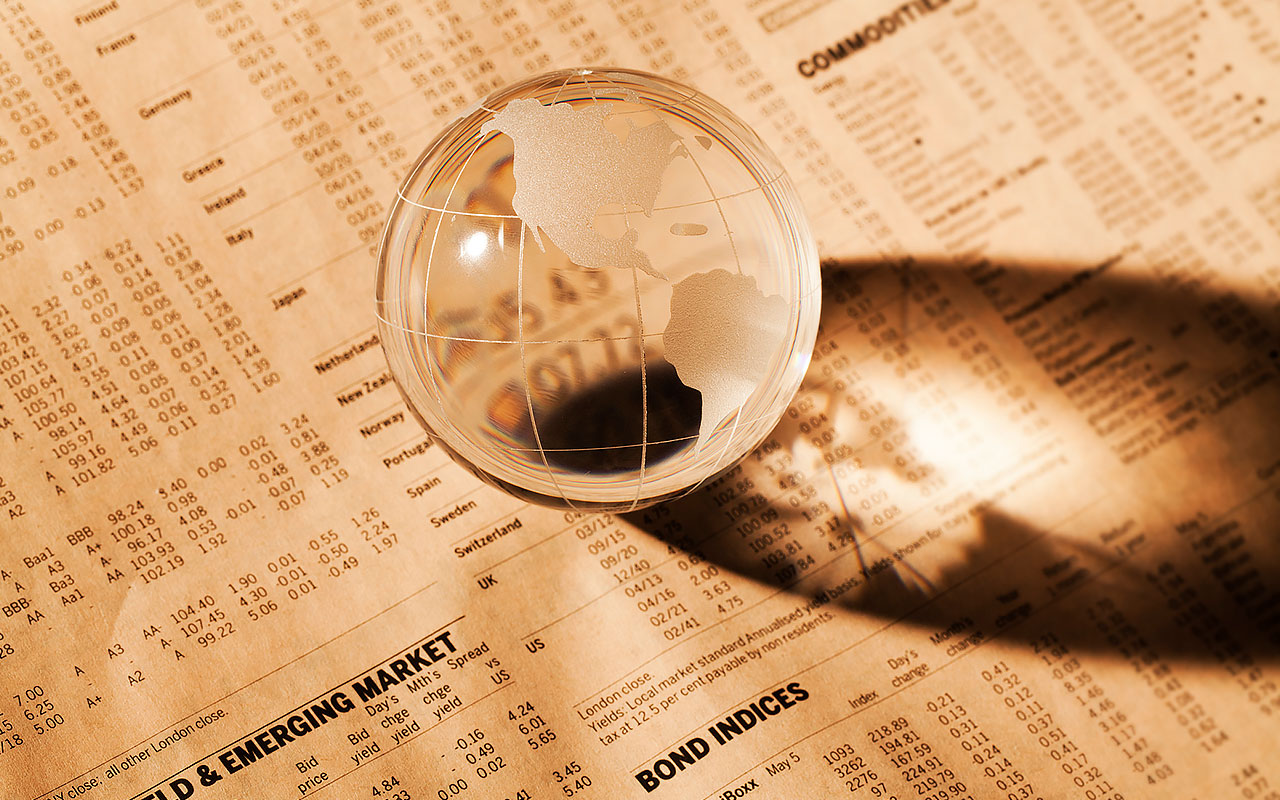10 Top Dividend Stocks From Around the World
The United States of America is one of the largest wealth creation machines in the history of the world.


Profit and prosper with the best of Kiplinger's advice on investing, taxes, retirement, personal finance and much more. Delivered daily. Enter your email in the box and click Sign Me Up.
You are now subscribed
Your newsletter sign-up was successful
Want to add more newsletters?

Delivered daily
Kiplinger Today
Profit and prosper with the best of Kiplinger's advice on investing, taxes, retirement, personal finance and much more delivered daily. Smart money moves start here.

Sent five days a week
Kiplinger A Step Ahead
Get practical help to make better financial decisions in your everyday life, from spending to savings on top deals.

Delivered daily
Kiplinger Closing Bell
Get today's biggest financial and investing headlines delivered to your inbox every day the U.S. stock market is open.

Sent twice a week
Kiplinger Adviser Intel
Financial pros across the country share best practices and fresh tactics to preserve and grow your wealth.

Delivered weekly
Kiplinger Tax Tips
Trim your federal and state tax bills with practical tax-planning and tax-cutting strategies.

Sent twice a week
Kiplinger Retirement Tips
Your twice-a-week guide to planning and enjoying a financially secure and richly rewarding retirement

Sent bimonthly.
Kiplinger Adviser Angle
Insights for advisers, wealth managers and other financial professionals.

Sent twice a week
Kiplinger Investing Weekly
Your twice-a-week roundup of promising stocks, funds, companies and industries you should consider, ones you should avoid, and why.

Sent weekly for six weeks
Kiplinger Invest for Retirement
Your step-by-step six-part series on how to invest for retirement, from devising a successful strategy to exactly which investments to choose.
The United States of America is one of the largest wealth creation machines in the history of the world. According to Credit Suisse, American stocks returned an inflation-adjusted annualized 6.5% between 1900 and 2014 – behind only Australia and South Africa, which lead all international stocks at 7.4% each. Go, ‘Merica!
But while American stocks have been the better long-term bet, they’re not always the best bargain. In fact, the U.S. market is priced to deliver subpar returns over the next decade, whereas many international stocks are downright cheap.
The cyclically adjusted price-to-earnings ratio (“CAPE”) is more than double its long-term average. And according to John Del Vecchio, co-manager of the AdvisorShares Ranger Equity Bear ETF (HDGE), “The median price/sales ratio on the S&P 500 is the highest it has ever been in history. We are three standard deviations above the average. You don’t need to be a math whiz to understand that this is a big deal.”
But while U.S. stocks are looking bubbly, investors can find bargains overseas.
“The U.S. market has been the best performing stock market in the world since the Great Financial Crisis, but that has led U.S. stocks into expensive territory,” says Meb Faber, chief investment officer of Cambria Investment Management. “The good news is that historically, U.S. vs. foreign stock outperformance is a coin flip in any given year. And with valuations abroad being much lower (particularly in emerging markets), we could see foreign stocks outperform over the next several years and even accelerate.”
Today, we’ll look at 10 solid international dividend stocks for investors looking to add foreign exposure to their portfolios. Investors will want to note that international taxes may apply, and that overseas stocks have much more varied payout schedules than the balanced quarterly routine of most U.S. companies. Still, even if Wall Street defies the laws of gravity and continues to outperform its international peers, these stocks will provide a steady stream of dividend income while we wait for market leadership to shift.
Data is as of Jan. 22, 2017. Yields represent the trailing 12-month yield, which is a standard measure for international stocks. Click on ticker-symbol links in each slide for current share prices and more.

BP
- Dividend yield: 5.5%
British oil major BP (BP, $43.39) has been something of a pariah stock ever since the 2010 Deepwater Horizon Gulf of Mexico oil spill. On Jan. 16, BP announced it was taking another $1.7 billion hit to earnings because of the ongoing costs of the legal settlement. The total cost to BP for the disaster is now estimated to be about $65 billion, making it by far the most expensive disaster in history for a company.
But here’s the thing: All of this was priced into the stock years ago. Sure, a bad headline like this can move prices for a day or two. But this is a major integrated oil major trading at a price-to-sales ratio of 0.6. To put that in perspective, rival Exxon Mobil (XOM) trades at a ratio of 1.7 – nearly three times higher.
BP also yields a very attractive 5.5%. And as crude oil prices continue to normalize and as the company’s legal liabilities get resolved, BP may reward its patient investors by raising its dividend.
This oil giant is not completely without risks, of course. Energy prices have been punishingly volatile over the past three years, and BP is more aggressively leveraged than its oil-major peers. But if you like a good turnaround story, BP is the stock for you.

Total SA
- Dividend yield: 4.7%
Along the same lines, French integrated oil major Total SA (TOT, $58.96) is an attractive play.
You don’t hear much about Total on this side of the Atlantic, but it is one of the world’s largest oil and gas company. As a fully integrated oil major, the company operates through three segments: Upstream (exploration and production), Refining & Chemicals, and Marketing & Services.
Total currently is exploring or producing in more than 50 countries worldwide, and its sprawling Refining & Chemicals segment makes an assortment of petrochemicals and polymer derivatives such as polyethylene and polypropylene. The company also operates approximately 16,000 service stations.
Energy companies tend to be big dividend payers, and Total is no exception. The stock offers a yield of 4.7% and has managed to continue growing its payout despite a very difficult pricing environment for oil and gas. Total has improved or maintained its dividend every year since 1982.
France isn’t always the most business-friendly locale, which is one of the reasons TOT often trades at a slight discount to its supermajor peers in other countries. But if you believe that European stocks are likely to outperform their American counterparts over the next few years, Total gives you the opportunity to collect a market-beating dividend while you wait.

ABB
- Dividend yield: 2.7%
Most readers have probably never heard of ABB (ABB, $27.99), but this part-Swedish, part-Swiss company has a presence in more than 50 countries and builds a lot of the “guts” that make the modern economy function. ABB builds power grid systems and assorted robotics and automation systems, among things.
This is no “old economy” relic. Robotics and automation are thought to be among the most potentially explosive market drivers of the next few years. ABB also is very active in building electric vehicle charging stations as well as equipment to harness solar, wind and other alternative energies. If you believe in a greener future, ABB will be a big part of that.
As you might expect for an electrical infrastructure company, ABB gets a large share of its revenues from the developing world. Emerging markets made up 46% of revenues in 2016, the most recent annual data available. So, in ABB, you get a nice combination of mature European management and attractive emerging-market growth.
ABB delivers a current dividend of 2.7%, and has steadily grown the payout despite a very tumultuous couple of years in most of the developing world. From 2013-17 – a period in which most EM economies struggled – ABB raised its dividend by about 9%.
As growth returns to the developing world, ABB’s electrical infrastructure will be more important than ever. This is a stock you should be able to buy, hold and forget about for the next decade.

Unilever
- Dividend yield: 2.7%
Few companies in the world boast products as ubiquitous as those of Anglo-Dutch consumer staples company Unilever (UL, $57.03). Its empire includes personal care brands such as Axe, Dove and Vasoline, and food and drink brands such as Lipton iced tea, Hellmann’s mayonnaise and Ben & Jerry’s ice cream, among many, many others.
There really is only one consumer brands company in the world that matches Unilever’s name recognition and sheer breadth of product lines, and that is America’s Procter & Gamble (PG).
Unilever has one major advantage over its American rival. Due in part to old colonial connections and to forward thinking by generations of management, Unilever has a massive presence in emerging markets. EMs account for fully 57% of Unilever’s business, and that figure will only get bigger with time.
UL offers a current dividend of 3.1%, and the company has a long history of raising its payout. Since moving to a quarterly payment schedule in late 2009, Unilever has hiked its dividend by 88%.
Don’t expect much growth for Unilever from developed markets like the United States or Europe. Realistically, growth in these markets depends on population growth – it’s not like we go out and buy more canned soup or body wash with our bonuses. But in emerging markets, there still is significant room for growth as millions of consumers enter the ranks of the global middle class and buy branded products for the first time. Unilever will be there to serve them.

National Grid
- Dividend yield: 5.0%
Britain’s National Grid (NGG, $57.18) is a mainstay in many international dividend ETFs and funds. It’s easy enough to understand why. As one of the largest electricity and gas companies in the United Kingdom and United States, it’s considered a stable and reliable dividend machine.
Utilities might not be the most glamorous sector, but they have incredible barriers to entry. National Grid owns and operates 7,200 kilometers of power lines, 1,500 kilometers of underground cable and 7,660 kilometers of high-pressure gas pipelines, among many other assets, in the U.K. alone. It would be cost-prohibitive and impractical for any would-be competitor to try to replicate that.
It’s not all sunshine and roses for the utilities sector, of course. As a highly regulated sector, utility companies generally are at the mercy of their respective governments. Furthermore, the push to integrate solar and other renewable energy sources is a large, open-ended risk to the traditional model.
That said, the bad news would seem to be priced in. At current prices, National Grid is trading near five-year lows and yields a very respectable 5%.
You won’t get rich buying National Grid, but it’s worth considering as an income-generating workhorse.

Toyota
- Dividend yield: 2.7%
If you consider yourself a contrarian value investor, it’s hard not to like the auto industry right now. Globally, it’s one of the few remaining industries that can credibly be called “cheap.” In a market that has favored technology and growth plays, the staid, old-economy automaking industry hasn’t exactly stirred the animal spirits.
But it should.
While Tesla Motors (TSLA) steals all the headlines these days, traditional automakers also are quickly rolling out electric and driverless prototypes. And unlike Tesla, they already have the infrastructure in place to mass-produce them and bring them to market.
One foreign automaker worth your attention is Japanese giant Toyota (TM, $139.40), the maker of the namesake Toyota brand and the Lexus luxury brand. Toyota is in a three-horse race with rivals Volkswagen (VLKAY) and the Renault-Nissan-Mitsubishi alliance to be the world’s largest automaker.
TM currently trades for about 11 times earnings, which is on the lower end of its historical range, and it pays a respectable 2.7% dividend. Toyota manages this dividend conservatively, too, with a policy of paying out about 30% of profits as dividends. But this hasn’t stopped the company more than doubling its distribution since 2013.
We are on the cusp of a golden age of innovation in the auto industry. Buying a proven winner like Toyota only makes sense.

Telefonica
- Dividend yield: 4.5%
Any story about dividend stocks naturally will include some allocation to the telecommunications sector. Along with utilities and real estate investment trusts (REITs), telecoms are some of the most reliable dividend payers in the world. A smartphone with a data plan is all but a necessity for modern living, so it makes sense to stuff a dividend portfolio with companies that provide this vital service.
This brings me to Spanish telecom giant Telefonica (TEF, $10.28), which is roughly comparable to an AT&T (T) or Verizon (VZ). The company provides mobile phone service, home and business internet service and paid TV, with a presence in 48 countries and full operations in 17, primarily in Europe and Latin America.
Telefonica’s presence in Europe is not especially compelling to me. Like the United States, Europe is a mature market in which virtually the entire population already owns a smartphone and has home internet access. But the company’s exposure to Latin America is a very different story. Brazil and broader Latin America collectively make up 45% of Telefonica’s revenues, and that figure will only grow with time.
Mobile phone penetration is already quite high in Latin America. For example, one recent estimate put Brazil’s smartphone penetration rate at 138%, above the world average of 115%. That doesn’t mean there isn’t substantial room for growth. Many working-class Latin American consumers have prepaid or entry-level data plans for basic messaging or browsing. But as incomes continue to rise in the region, you can bet they will upgrade to faster and more comprehensive plans for media streaming and other features. Telefonica will be there to provide it.

China Mobile Limited
- Dividend yield: 5.5%
Along the same lines, China Mobile Limited (CHL, $51.97) is a worthy contender for an international dividend portfolio. China Mobile is the world’s largest mobile telecom company both by market capitalization and by number of subscribers. The company sports a market cap of $212 billion and has nearly 900 million current subscribers.
Like many emerging-market stocks, China Mobile has had a difficult time getting any traction in recent years. Its U.S.-traded ADRs have hardly budged in five years, which means the 5%-plus dividend has been the primary source of returns. But after trading sideways for so long, shares finally are starting to show signs of life, up about 5% year-to-date.
It’s understandable to have reservations about investing in China. The country is notorious for cooking its books, and U.S.-Chinese relations aren’t exactly the friendliest these days. But China’s economy finally appears to be shaking out of its multiyear funk, growing at 6.9% last year. And investors also are warming up to Chinese stocks, due in no small part to MSCI’s decision to finally include Chinese A shares (companies listed on mainland China exchanges) in its popular emerging-market indexes. This should mean hundreds of billions of dollars in inflows into the country’s stock market in the years ahead.
China Mobile is an H share, trading in Hong Kong, and not a mainland-traded A share. But this rising tide should lift all boats, with investor enthusiasm for A shares spilling over into the Hong Kong market, too.

MTN Group
- Dividend yield: 4.7%
One last telco pick, South Africa’s MTN Group (MTNOY, $11.34), is worth a good look.
African stocks are not for the faint of heart. This still is very much the Wild West of investing, but that’s also what makes African stocks so appealing. Sub-Saharan Africa is one of the few regions of the world that can realistically expect to grow at “China-like” rates in the decades ahead. Mobile communication is a big part of that story.
One of the reasons for Africa’s lack of development is its harsh geography, which makes building infrastructure very difficult and very expensive. But mobile technology allows large parts of Africa to essentially skip several developmental steps and jump with both feet into the modern world.
As a local company that understands the continent, MTN has major advantages over rivals like Britain’s Vodafone (VOD). Inflation and instability in the South African rand is a problem, unfortunately. But if you’re willing to be patient and accept a little currency volatility, MTNOY is a stock you could consider buying and essentially dropping in a drawer and forgetting about for the next decade.
Buy MTN, collect its fat 4.7% dividend, and watch one of the great growth stories of our time unfold.

iShares Emerging Market Dividend ETF
- Dividend yield: 4.8%*
Emerging markets are just now emerging from a dark period of commodity price instability, political chaos and weaker-than-usual growth. Starting a little over a year ago, EM stocks finally started rising again.
If you time a bull market in emerging-market stocks correctly – admittedly not an easy task – you can reap massive gains in just a few years. And it’s likely we’re in the early stages of one of those moves.
If you want in on the action, the iShares Emerging Markets Dividend ETF (DVYR, $45.07) is a solid option. This portfolio of roughly 100 stocks includes Chinese real estate company R&F Properties, Russian oil and gas company Surgutneftegas and MTN, among others, and charges just 0.49%, or $49 annually for every $10,000 invested.
Yes, “emerging markets” and “dividend stocks” make an odd couple. Emerging markets tend to be volatile and risky, whereas dividend stocks are something bought for conservative retirement income.
But that’s what’s great about DVYE. It provides exposure to emerging markets, but pays investors for putting their capital at risk via an attractive 4.8% dividend.
*Yield represents the trailing 12-month yield, which is a standard measure for exchange-traded funds.
Charles Sizemore was long DVYE as of this writing.
Profit and prosper with the best of Kiplinger's advice on investing, taxes, retirement, personal finance and much more. Delivered daily. Enter your email in the box and click Sign Me Up.

Charles Lewis Sizemore, CFA is the Chief Investment Officer of Sizemore Capital Management LLC, a registered investment advisor based in Dallas, Texas, where he specializes in dividend-focused portfolios and in building alternative allocations with minimal correlation to the stock market.
-
 Ask the Tax Editor: Federal Income Tax Deductions
Ask the Tax Editor: Federal Income Tax DeductionsAsk the Editor In this week's Ask the Editor Q&A, Joy Taylor answers questions on federal income tax deductions
-
 States With No-Fault Car Insurance Laws (and How No-Fault Car Insurance Works)
States With No-Fault Car Insurance Laws (and How No-Fault Car Insurance Works)A breakdown of the confusing rules around no-fault car insurance in every state where it exists.
-
 7 Frugal Habits to Keep Even When You're Rich
7 Frugal Habits to Keep Even When You're RichSome frugal habits are worth it, no matter what tax bracket you're in.
-
 Stocks Sink With Alphabet, Bitcoin: Stock Market Today
Stocks Sink With Alphabet, Bitcoin: Stock Market TodayA dismal round of jobs data did little to lift sentiment on Thursday.
-
 Dow Leads in Mixed Session on Amgen Earnings: Stock Market Today
Dow Leads in Mixed Session on Amgen Earnings: Stock Market TodayThe rest of Wall Street struggled as Advanced Micro Devices earnings caused a chip-stock sell-off.
-
 Nasdaq Slides 1.4% on Big Tech Questions: Stock Market Today
Nasdaq Slides 1.4% on Big Tech Questions: Stock Market TodayPalantir Technologies proves at least one publicly traded company can spend a lot of money on AI and make a lot of money on AI.
-
 Fed Vibes Lift Stocks, Dow Up 515 Points: Stock Market Today
Fed Vibes Lift Stocks, Dow Up 515 Points: Stock Market TodayIncoming economic data, including the January jobs report, has been delayed again by another federal government shutdown.
-
 Stocks Close Down as Gold, Silver Spiral: Stock Market Today
Stocks Close Down as Gold, Silver Spiral: Stock Market TodayA "long-overdue correction" temporarily halted a massive rally in gold and silver, while the Dow took a hit from negative reactions to blue-chip earnings.
-
 Nasdaq Drops 172 Points on MSFT AI Spend: Stock Market Today
Nasdaq Drops 172 Points on MSFT AI Spend: Stock Market TodayMicrosoft, Meta Platforms and a mid-cap energy stock have a lot to say about the state of the AI revolution today.
-
 S&P 500 Tops 7,000, Fed Pauses Rate Cuts: Stock Market Today
S&P 500 Tops 7,000, Fed Pauses Rate Cuts: Stock Market TodayInvestors, traders and speculators will probably have to wait until after Jerome Powell steps down for the next Fed rate cut.
-
 S&P 500 Hits New High Before Big Tech Earnings, Fed: Stock Market Today
S&P 500 Hits New High Before Big Tech Earnings, Fed: Stock Market TodayThe tech-heavy Nasdaq also shone in Tuesday's session, while UnitedHealth dragged on the blue-chip Dow Jones Industrial Average.
